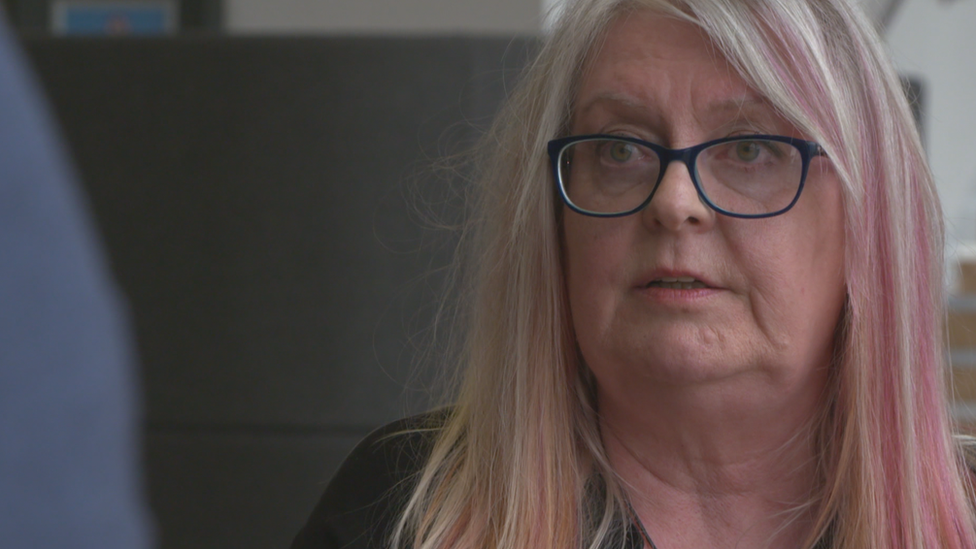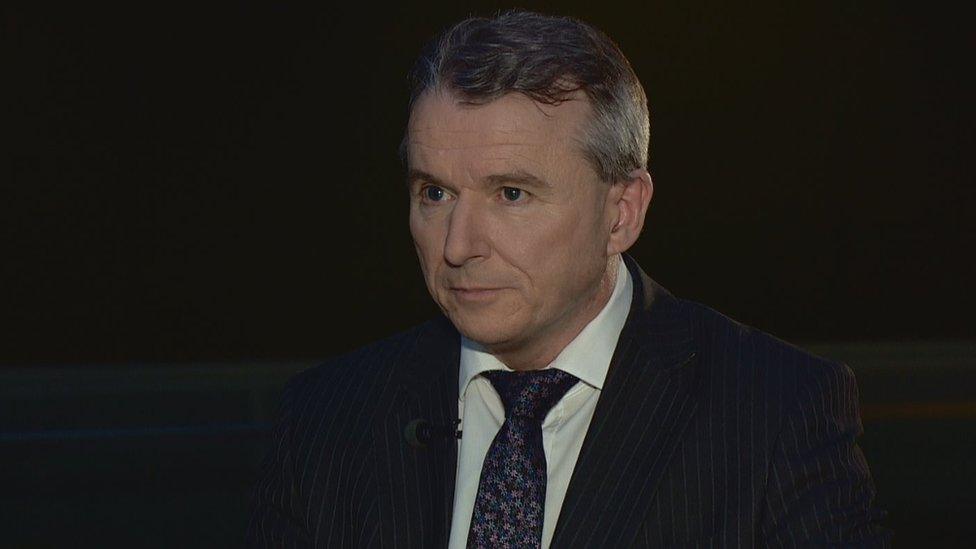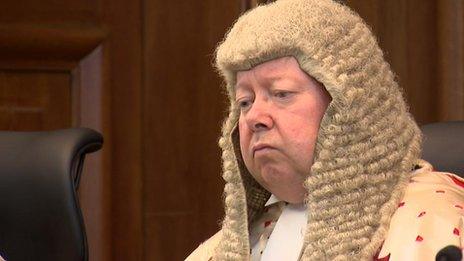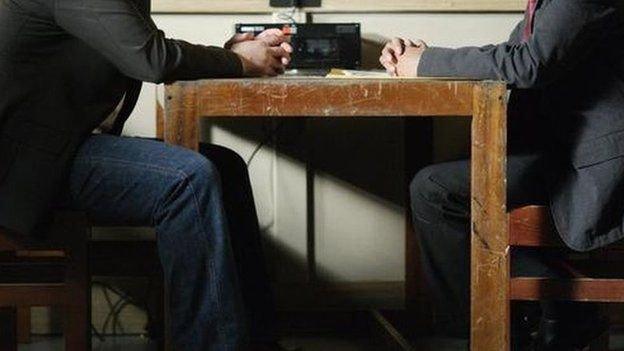Abuse survivor calls for end to corroboration
- Published

Suzy Angus felt "defeated" after trying to seek justice
A woman who says she was sexually abused as a child has told the BBC she felt "defeated" after trying to seek justice.
Suzy Angus is part of the Speak Out Survivors group campaigning to scrap the need for corroboration in Scots law.
Corroboration means two separate sources of evidence are needed for a case to go to trial.
The campaigners will meet MSPs at Holyrood later.
They are also due to raise the issue in a meeting with Justice Secretary Humza Yousaf.
Ms Angus told BBC Scotland's The Nine that she had tried to take her case to court, but it was dropped because of the need for corroboration, which is a unique feature of Scots law.
She said she was raped for the first time when she was 13-years-old.
Over the next two years, she said she was raped and sexually abused multiple times by a group of six men.
'I just felt like collapsing'
She said that having to recount "incredibly detailed information" that she had "buried for over 40 years" has left her on medication for PTSD and anxiety.
Investigating the case and trying to bring it to court was a long and complicated process.
She said: "Because there were several people involved, it took about 18 months, probably, for everybody to be investigated.
After one man was arrested, she felt hopeful of a prosecution: "I was getting quite interested in the fact that maybe finally there will be a prosecution, and they said 'Sorry, no corroboration, that's the end of the line'.
"I was standing in my office at work on the phone and that was it, and I just felt like collapsing."
Now, she is campaigning, along with other survivors of sexual abuse, for corroboration to be dropped.
In 2014 SNP ministers had proposed abolishing the need for corroboration, although this was dropped in 2015 after a review by former high court judge Lord Bonomy recommended it should be retained in some circumstances.
Ms Angus said she appreciated why the standard of evidence should remain high: "I understand that you do have to protect people.
"I'm not for changing the law just so people will be falsely convicted, of course not, the law has to protect everybody and everyone deserves a defence.
"However, it's the quality and sometimes the quantity of evidence."
In her case, however, she thinks that had there been no requirement for corroboration there would have been enough evidence for a prosecution.
"In my case it was patterns of behaviour over several people that would have taken someone to court and you know it's jut left me feeling kind of defeated, to be honest."

Brian McConnachie QC says he has never been convinced by the arguments for scrapping corroboration
Brian McConnachie QC said that the merits of corroboration had already been debated and a decision had already been made for it to be continued.
He said: "I know that some people consider that corroboration is something which we ought to abandon or abolish, and as often as not the argument is given that it should be abolished because nobody else has it.
"I've never been convinced by that argument.
"We went through a process where it was discussed at significant and considerable length, and at the end of that process the decision was taken that it should go no further."
Jury research
A Scottish government spokeswoman said: "There was no parliamentary or legal consensus for the removal of the corroboration requirement.
"We asked Lord Bonomy to conduct a review into what additional safeguards may be required if the corroboration rule was removed.
"The review recommended research into jury reasoning and decision-making should be undertaken so that any changes to the jury system are made on a fully informed basis."
She added: "Any future consideration of corroboration reform needs to await the findings of the jury research, which we expect to be complete by Autumn 2019.
"Since the review reported, we have taken forward a wide range of measures to improve how the justice system deals with allegations of sexual offending and to improve support for victims.
"The justice secretary and lord advocate co-chair a new victims' taskforce to improve the provision of advice and information for victims of crime and their families and the Scottish government also legislated to introduce statutory jury directions in certain sexual offence cases."
- Published7 January 2014

- Published21 April 2015
